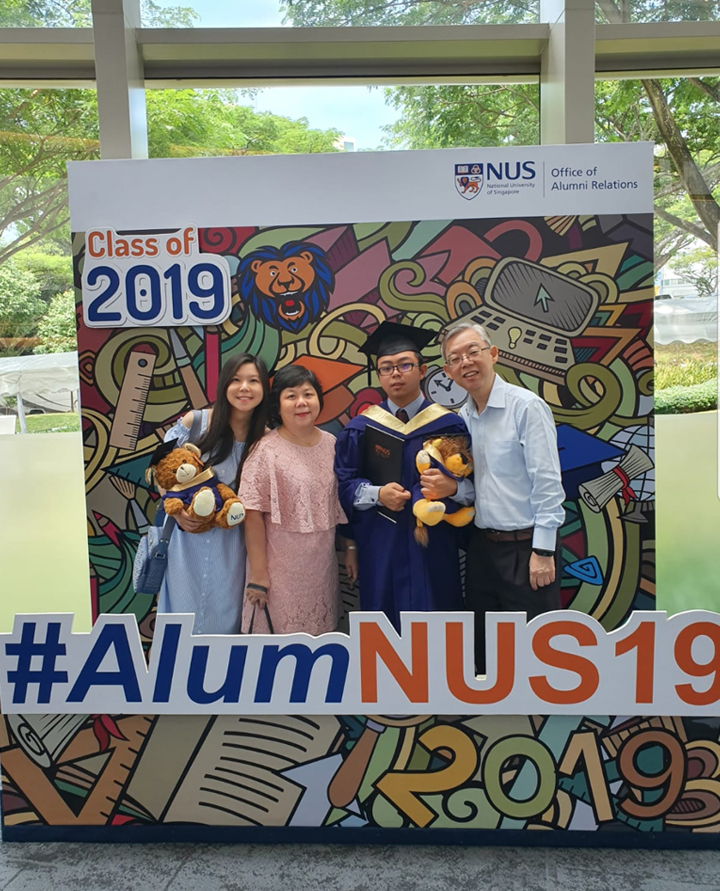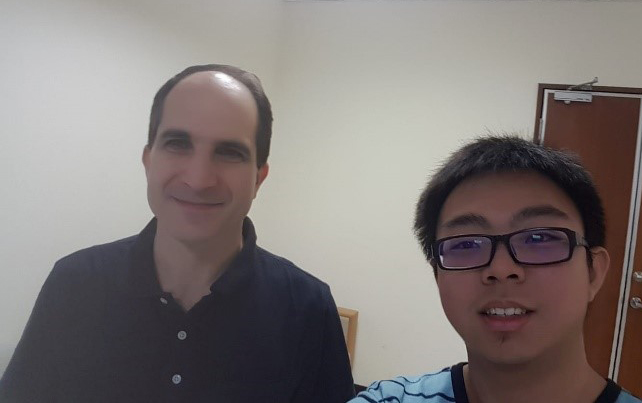My Academic Journey…
Physics graduate Mr Lim Zheng Liang [BSc (Hons) 2019] share about his academic journey.
I consider myself a late bloomer. I did not fare well in my primary school leaving examination and secondary school physics. However, that did not stop me from pursuing something non-trivial as physics. Through Discovery Channel, I came to know of Prof Stephen Hawking. I was deeply inspired by his perseverance and undying will to seek a better understanding of cosmology and black holes. So I began spending time reading Hawking’s books like A Brief History of Time. Though I found the classroom physics teaching not as inspiring as I had hoped, deep down inside me, I knew that I have always wanted to pursue theoretical physics. So it was without hesitation that I decided to pursue a higher education in physics and NUS was my first choice.
During my time at the Department of Physics, I undertook a few projects in theoretical physics. At the end of my second year, I had the opportunity to work on a UROPS project under A/Prof Edward Teo on black holes and asymptotic symmetries as I was particularly interested in Strominger’s unique attempt in resolving the black hole information paradox. The following year, I went on an exchange programme at the University of California, Davis, where I took a graduate course in Riemannian geometry to augment my understanding of the mathematics behind Einstein’s General Relativity.
After my exchange, I embarked on another research opportunity at Academia Sinica, Taiwan, for about three months. During the time, I worked on the subject of Intrinsic Time Quantum Geometrodynamics—the oldest approach in quantising gravity, which more recently, incorporated Horava Lifshitz gravity into its context. In addition, I also attended some conferences and met one of my idols in theoretical physics, Prof Juan Maldacena, who has published the most cited paper in theoretical physics indirectly leading to a better understanding of the relationship between black hole physics and condensed matter physics.
I then returned to the department and completed my thesis with the guidance of A/Prof Kuldip Singh. Here we explored Newton-Cartan gravity which is the realisation of Newtonian gravity under the mathematical context of Riemannian geometry. All in all, I would say that my academic journey in NUS is definitely a fulfilling one.
Having said all these, I would not disagree that studying physics is challenging especially for some modules. The derivations may be tedious and cumbersome. But if physics is really something one is passionate about, then it is not worth giving up! The struggle is never alone but a collective one! So for juniors out there, if the answers are not obvious even from the lecturers, treat it as a test of self-discipline. Make full use of the recommended materials or textbook and work through problems to enhance your understanding before the exams.
Looking back at my past four years, I am grateful to the professors in the department who were open for consultations whenever I needed help. I do wish I had time to participate in other curriculum activities and meet new friends outside of physics. So my advice to juniors is to make full use of the opportunities the university offers, whether to enhance one’s research experience or to make new friends. As ideal as possible, there should be a fine balance between school work and fun. Finally, ignore those naysayers who say there is no job prospect with a physics education. Pick up technical skills like coding, Matlab, etc and promote these skills so that you can be a notch above the rest when it comes to career search.
Zheng Liang is currently pursuing his postgraduate studies at the Centre for Particle Theory, Durham University.


